Living with the unvaccinated
The argument that vaccinations are crucial in blocking Covid transmission has fallen over. We can’t keep denying someone employment over their refusal to get the jab.
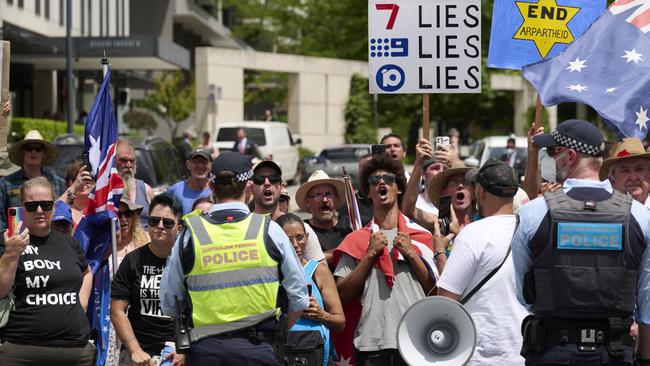
This was the end of vaccine mandates in Britain, as Javid announced consultations about “ending vaccination as a condition of deployment” across the National Health Service.
Reports suggest the health and aged-care sector already had lost more than 40,000 workers because of the mandatory jab policy and that if the deadline of last Thursday had been enforced up to 140,000 more health care workers would have been dismissed.
Rather than add to pandemic and health system challenges by creating a shortage of doctors, nurses, cleaners and orderlies, the Health Secretary chose to scrap the rule. Also, the medical grounds for imposing such mandates have evaporated, especially with the onset of the Omicron variant.
The argument that vaccinations are crucial in blocking transmission of the virus has fallen over. The proposition that you are vaccinating yourself to protect others no longer stands up.
This is clear to anyone looking at what is happening in Australia, with tens of thousands of new Omicron cases daily despite a vaccination rate of more than 90 per cent. That the unvaccinated are denied entry into some venues – let alone barred from work – because they might spread the disease is farcical; the virus is spreading well enough among the doubled jabbed, thank you very much.
In prestigious medical journal The Lancet this week, University of Colorado associate professor of infectious diseases Carlos Franco-Paredes shared the latest research on this topic from Britain, Israel, Texas and California.
He noted these studies showed “the impact of vaccination on community transmission of circulating variants of SARS-CoV-2 appeared to be not significantly different from the impact among unvaccinated people”.
Franco-Paredes drew two key conclusions: current “mandatory vaccination polices might need to be reconsidered” and, on the other hand, “mitigation practices” such as physical distancing and mask-wearing still would need to be followed, even in highly vaccinated populations. This is the contemporary reality. Experts have long suspected that this is the case – Covid-19 vaccines have been very effective in reducing the incidence of serious illness and death but not so in preventing infection and transmission.
The only burden imposed on society by the unvaccinated is a disproportionate load on our hospitals because of their higher risk of serious illness. But we could say the same for the overweight, smokers, drinkers and motorcyclists.
Not that the risks of serious illness for healthy adults or children are high, especially now with Omicron. The weekly epidemiology reports published by NSW Health show a dramatic drop in virus danger. Delta sent 10 per cent of cases to hospital, with 2 per cent ending up in intensive care units and one in every 100 dying.
Since late November the hospitalisation rate has dropped by a factor of 90 per cent to just 1 per cent, and only 0.1 per cent of cases require ICU, while the mortality rate is now running at 0.04 per cent.
Omicron is far more contagious but dramatically less dangerous than Delta. The numbers are far lower for healthy adults and children, of course, with most serious illnesses and deaths in the over-70s.
It is worth comparing all this with the national influenza report for 2019, which cited 30,000 hospital admissions from 313,000 notified cases – a hospitalisation rate of 10 per cent, similar to Delta. There were more than 950 influenza deaths, a mortality rate of 0.3 per cent, which is significantly less deadly than Delta but more deadly than Omicron.
These comforting statistics reflect the benefits of widespread vaccination and improved treatments, as well as the milder variant. Little wonder Denmark has scrapped all restrictions and is no longer treating Covid-19 as a “socially critical disease”.
I write this week from home isolation because my 10-year-old son tested positive last weekend. He was ill with a fever for 24 hours – which is worse than most kids suffer – but has been robust all week and should be back out on the cricket field by the time you read this.
Yet his 24-hour illness has cost him and his brother their first week at school and kept his mum and me working from home all week even though we have not been able to conjure a positive test between us. This is not only unnecessary but, replicated everywhere, it is crippling the country.
With tens of thousands of often asymptomatic cases knocking out close contacts from work or school, the country is dislocated for no good reason.
We should not be far from a Denmark-style realisation where the symptomatic or sick stay home and the rest go about their business with due regard for social distancing and hygiene.
Yet most media and politicians are stuck in a theatre of paranoia that dramatises infections and heightens fears. Seldom is there perspective about how more than 400 people die in this country every day, most of them elderly, many in aged-care homes and often from respiratory infections.
In its pre-vaccine, Alpha phase, Covid-19 was a horrible threat cutting a swath through aged communities. But for years into the future it is likely to be one of the viruses we are alert to, keeping our vaccinations up to date, knowing it will be at least partly responsible, along with the flu and the common cold, for the deaths of some of our elderly. We need to concentrate on protecting these vulnerable cohorts.
Australian National University infectious diseases expert Peter Collignon has been a pragmatic and prescient voice for the past two years. He told me on air last week that we are seeing “much, much less deaths per person infected” and “the people who are mainly coming to grief, unfortunately, are those who are elderly, often with underlying conditions”.
Collignon also noted the unvaccinated figure “disproportionately” in ICU admissions and deaths. He says Covid-19 deaths will be with us for years to come and, to some extent, the virus will replace other ailments as a cause of death.
Former deputy national chief medical officer Nick Coatsworth told me vaccine mandates have a “time-limited role in a pandemic”. However, he believes Australia will need to put the Omicron wave behind it – probably within the first quarter of this year – before we consider ending existing mandates, with health and aged-care workers the last to be relieved of these requirements. Discussion of this practical reality is at odds not just with current media hysteria but with the way governments and the private sector are treating vaccines and the unvaccinated – politicians have demonised the unvaccinated.
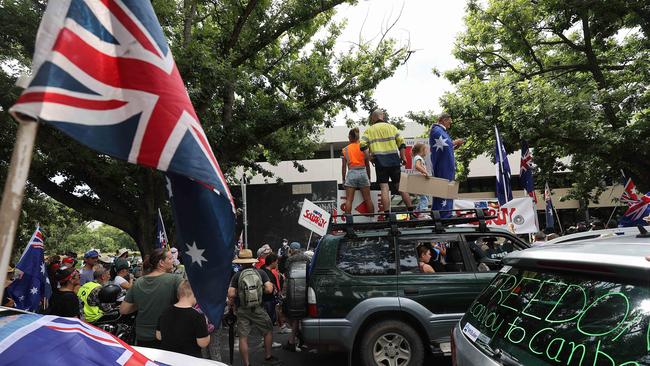
In the latest high-profile case, former Port Adelaide AFL premiership captain Warren Tredrea has lost his job as a Nine News sports broadcaster in Adelaide because he refuses to be vaccinated. Yet if vaccination does not prevent infection and transmission, what is the argument for denying someone employment over their refusal to get the jab? The unvaccinated are putting no one at risk but themselves.
It has been obvious for almost two years that we will all be exposed to this virus, which is why we needed to learn to live with it. In Australia we gave ourselves a year of quarantine to keep the virus at bay until we got vaccines.
Yet look at the madness gripping Western Australia, where Mark McGowan’s Covid-zero delusion creates bizarre disruptions. Some schools, with single infections, are sending dozens of teachers and hundreds of students into 14 days of home isolation.
Perth’s Corpus Christi College had one student test positive, so 17 teachers and 212 students are now in isolation. WA Education Minister Sue Ellery helpfully said only the students needed to isolate, not their entire families.
Yes, Minister, I can imagine families choosing to banish their child to the pool room for a fortnight, excluding them not only from school but from the comfort of family. What callous, brainless tosh. On Thursday night a policeman entered a Catholic church in Perth during mass, checking on mask-wearing.
Instead of questioning this sort of futile and damaging pandemic management, or sharing the reassuring facts about coronavirus infections, our national political media obsesses over nasty text messages from two years ago and price checks in aisle five. Our media epidemic of superficiality directly affects our ability to deal with the pandemic.
The Twitterfication of our national debate is part of the reason that just a day after asserting the need to “get back to normal” the Prime Minister refused to criticise McGowan’s hard border. Does that mean Scott Morrison is the Prime Minister of just five states and two territories for now? Has Canberra no interest in uniting the nation? Was WA’s long-discussed secession as easy as that?
Consider for a moment how often premiers, including Victoria’s Daniel Andrews, have hidden behind their hallowed but never disclosed medical advice. Lately Andrews has been advocating a redefinition of full vaccination to include a third, booster shot.
But this week when Victoria’s chief health officer Brett Sutton was quizzed on this proposition, he revealed he had not been asked to provide any advice on that prescription. Ah, that infallible medical advice – hide behind it one minute, make it up the next.


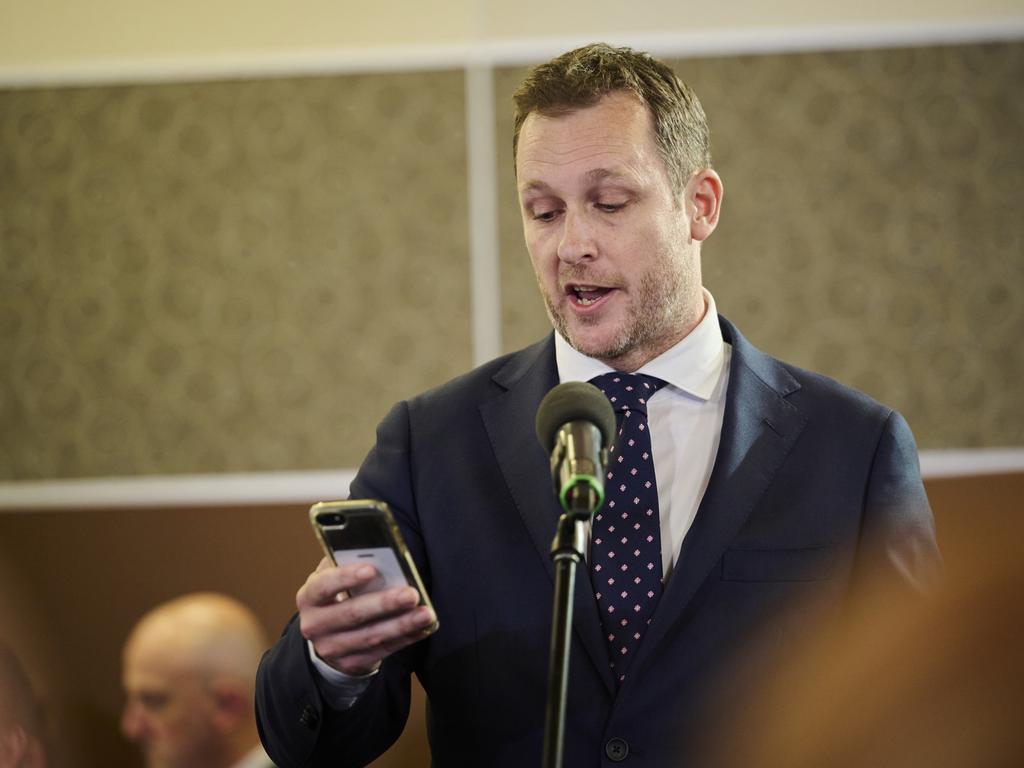
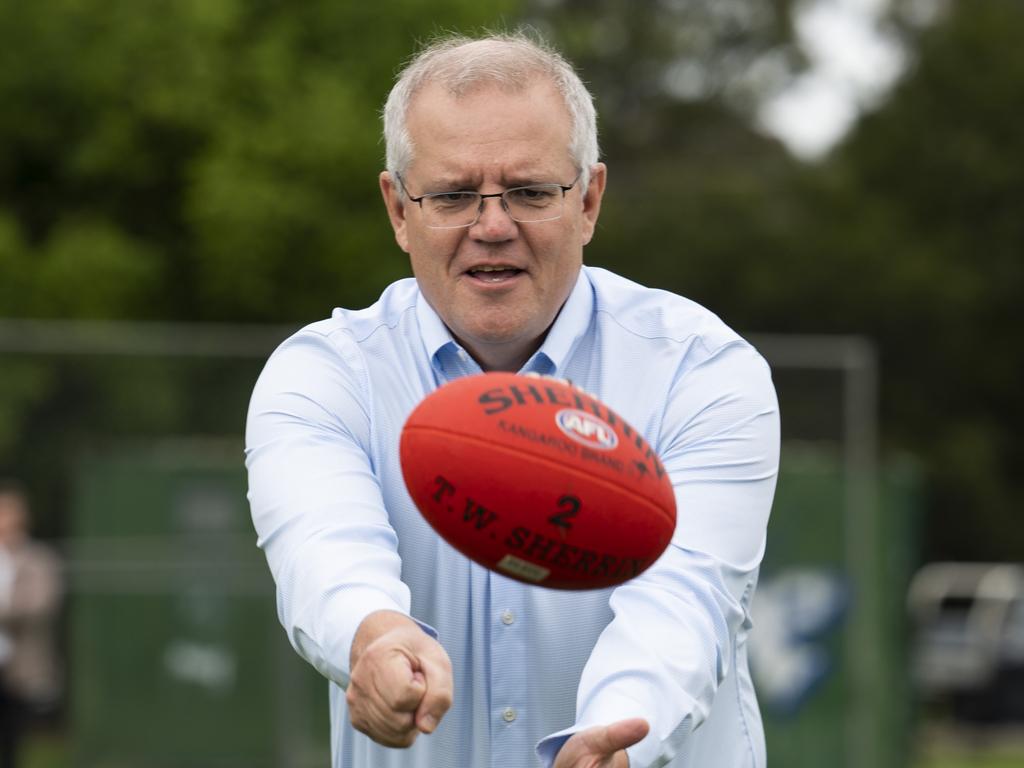
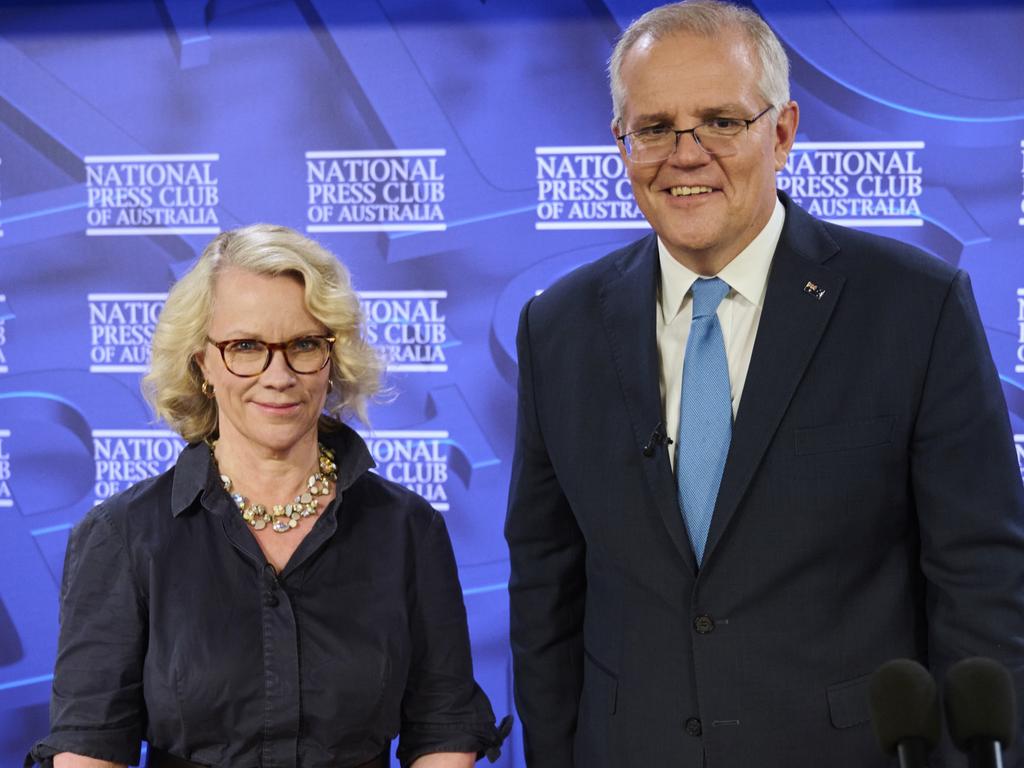
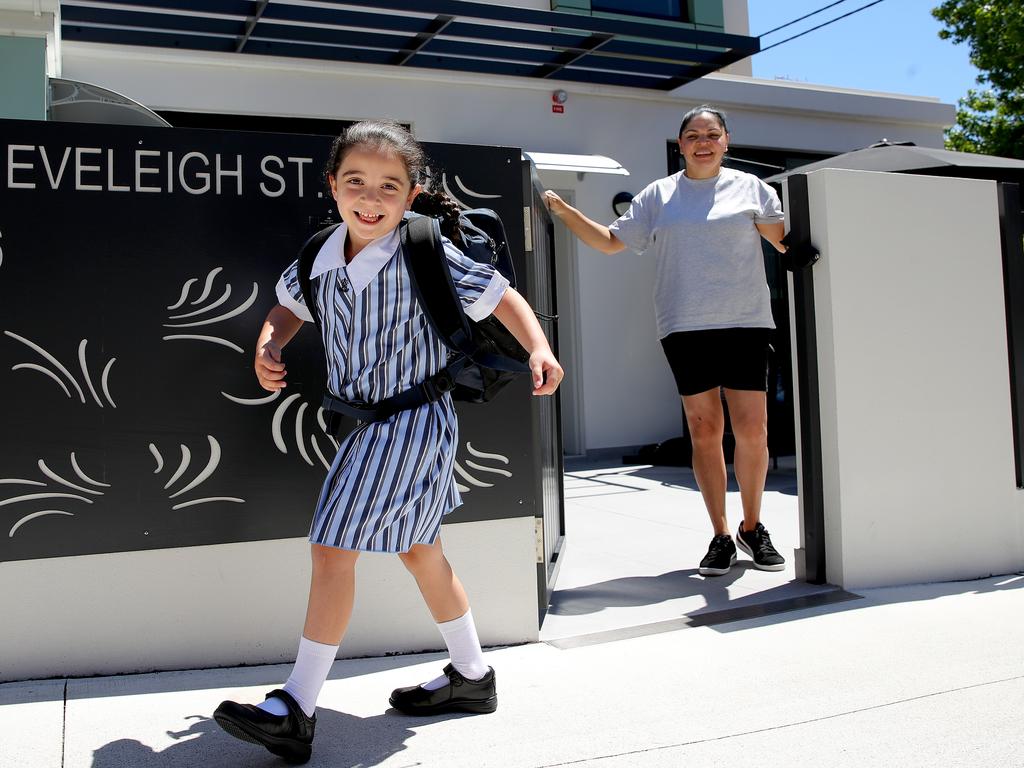


When British Health Secretary Sajid Javid stood in the House of Commons this week he announced a major backflip for the trouble-plagued Johnson government and struck a blow for pandemic realism globally. “While vaccination remains our very best line of defence,” Javid said, “I believe it is no longer proportionate to require vaccination as a condition of deployment by statute.”